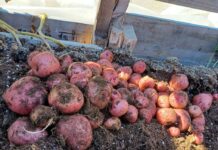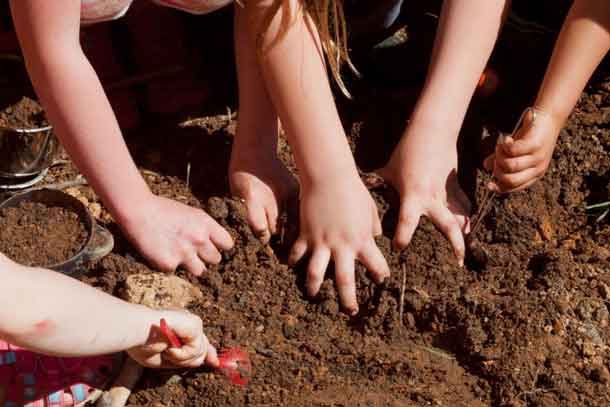
THUNDER BAY – Spring has finally come to our neck of the woods, and we’re beginning to take the tiny shoots from our mini-greenhouse in our basement out into the world. I want my daughters to know where their food comes from, but growing a kid-friendly garden means more than just planting kid-friendly plants.
If you want to get kids to actually eat their veggies, it helps if you get them invested in the process and care of the garden. If your kids see the backyard vegetable garden as “theirs,” they are far more likely to embrace the products: happily eating radishes and arugula that they’ve grown on their own. Here are six tips — tested in our home — to get your kids to embrace gardening and become active agents in creating their own food.
1. Get dirty
Forget the image of white-frocked children basking in a pristine flower bed; that image gets in the way of real gardening. Get your kids dirty as fast as possible. Ask them to dig with hand trowels, sticks or bare fingers, and they will leap at the opportunity. When watering, “accidentally” drench them with a good hosing. They’ll squeal, then beg for more — and watering is no longer a chore but a family frolic. Make mud and get them in it. Over-plant in anticipation of grubby little fingers pulling out the extraneous shoots. A garden shouldn’t be too precious. Good gardening demands some filth, and when kids realize this, they embrace it.
2. Get gross
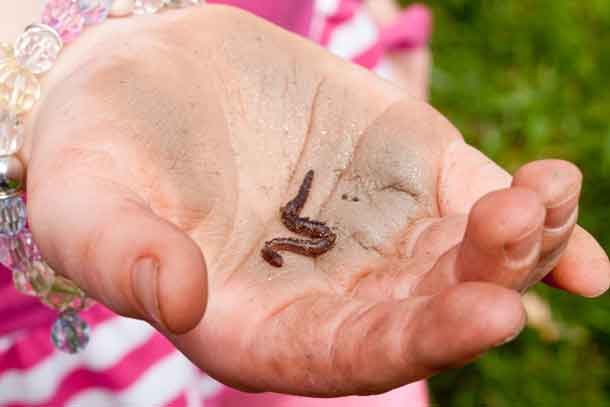
Kids love gross, and a garden has it in spades. Ask your kids to find worms, then take the opportunity to discuss their impact on the soil. If your garden doesn’t have enough worms, go buy them and let the kids play with their new “pets” while you’re putting them into the garden. If you want to step it up a notch, create a vermiculture bin and let your kids be in charge of the worm farm. Look for beneficial insects such as ladybug larvae and lacewings. Explain that the reason you wash food that comes from the garden comes down to two words: bird poop. Some kids may react negatively to grossness, but that’s part of the charm. Gross things are both attractive and repulsive to young ones, and finding that fine line where attraction and repulsion equal each other out keeps the kids coming back to the garden.
3. Get creative
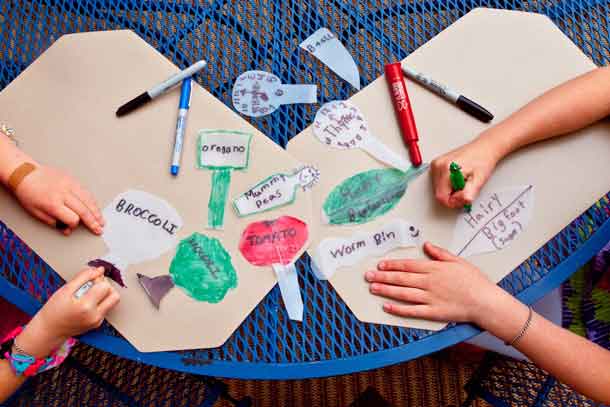
Encourage your kids to rename the plants in the garden. Our girls have dubbed our sage bush as “Hairy Bigfoot Plant.” That name has made the humble herb extremely attractive to our girls and to the neighbor kids — especially after we cut out pieces from a milk jug and made markers for our newly named plants. In fact, our two girls and the neighbor boy run to this plant every morning as they walk to school and actually eat a leaf of Hairy Bigfoot Plant. Without that name, I suspect elementary school kids would not be eating raw sage leaves every morning on the way to school. Have your kids play The Name Game, and they are suddenly personally invested in growing and eating mummy peas (snap peas) and bloody spice balls (radishes).
4. Get a kit
Kids love kits, so create an easily portable garden set for each child. You can buy them ready-made at the nursery or dollar store … but where’s the fun in that? Ask your kids to choose cheap tools for themselves, or gather the tools you already have and put them in specific kits. We turned milk jugs into garden kits, but a tote bag or plastic bucket works just as well. Add more than just a trowel rake and gloves. Put in a magnifying glass, eyedroppers, specimen jars and other “scientific” tools to deploy in the garden. When it’s time to do some weeding, tell your kids to grab their kits and you suddenly have an eager workforce.
5. Get experimental
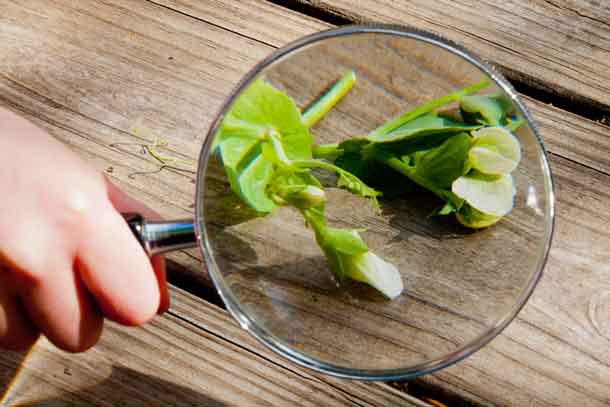
Make your garden a laboratory, not a display. Ask your kids to experiment with the dirt, the compost, the layout and the results of your planting. Turn gardening into a science experiment. When the plants are coming up, try taste experiments — is this bitter? Sour? Sweet? This type of hands-on discovery helps kids understand that “good” doesn’t always mean “familiar” — so that when your crop is ready for the kitchen, your kids will beg to try to results. This may require you to set aside a part of your garden to be devoted to the kids’ experiments (so that you don’t ruin your entire crop) but their creative/destructive explorations will personalize your garden… and its results.
6. Get dramatic
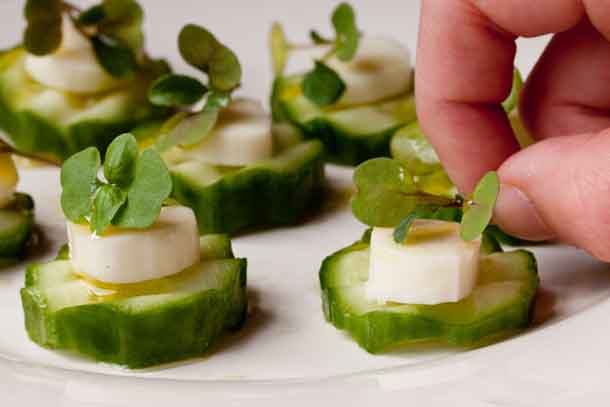
Learn a lesson from molecular gastronomy: Presentation and entertainment are part of the full experience of food. When it was time to thin the new shoots of butter crunch lettuce and arugula, we had our girls wash the tiny shoots and arrange them attractively on a platter with small chunks of string cheese and a drizzle of olive oil and lemon juice. A garden chore suddenly becomes an art project, then a dish of Farm-To-Table Micro-Greens. In the garden itself, use the “experimental” area for play as well as work: Set up scenes, fairy gardens or Lego cities beneath the plants. The “forest” of carrots grows more lush around the tiny family that lives beneath it … then Godzilla descends at harvest time, pulling the trees by the roots as the dolls run and scream in horror. The garden becomes a playground, and the plate becomes a stage, turning the concept of “playing with your food” into a deeper understanding of the earth, growing plants and the process of creating and eating food.
Copyright Susan Lutz via Zester Daily and Reuters Media Express



